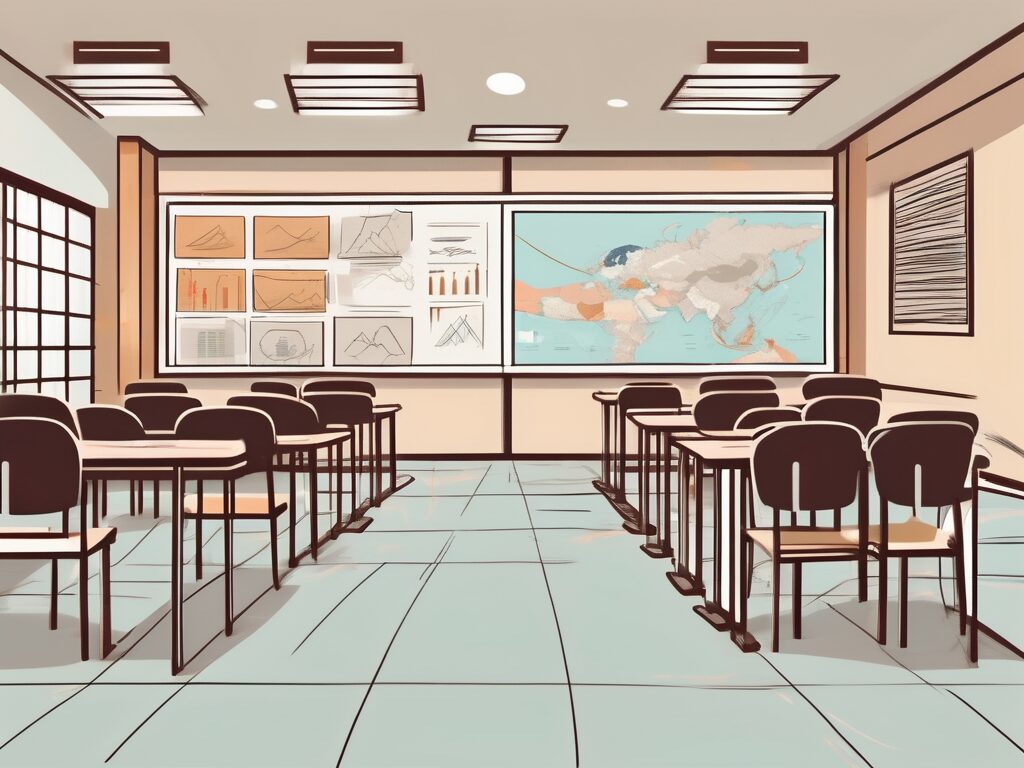Bangkok, the vibrant capital of Thailand, is a city that never sleeps. Its public school system is as diverse and dynamic as the city itself. However, for internationally educated teachers, navigating this system can present a unique set of challenges. This article delves into these challenges, offering insights and potential solutions for those considering a teaching career in Bangkok’s public schools.
Understanding the Thai Education System
The first hurdle for internationally educated teachers is understanding the Thai education system. Unlike many Western education systems, Thai schools operate on a different calendar, with the academic year starting in May and ending in March. This can be disorienting for teachers accustomed to a September to June academic year.
Additionally, the Thai education system places a strong emphasis on rote learning and memorisation, a stark contrast to the more interactive and discussion-based learning methods favoured in many Western countries. This difference in teaching styles can be challenging for internationally educated teachers to adapt to.
Language Barrier
Another significant challenge is the language barrier. While English is taught in Thai schools, the level of English proficiency among students varies greatly. This can make classroom communication difficult, particularly for teachers who do not speak Thai.
Moreover, many administrative tasks and meetings are conducted in Thai, which can leave non-Thai speaking teachers feeling isolated and out of the loop. It’s akin to trying to solve a crossword puzzle with half the clues missing – frustrating and time-consuming.
Navigating Cultural Differences
Thailand is known as the ‘Land of Smiles’, and its people are renowned for their friendliness and hospitality. However, beneath this welcoming exterior, there are cultural nuances that can be difficult for foreigners to grasp. This is as true in the classroom as it is in everyday life.
For instance, the concept of ‘face’ is extremely important in Thai culture. This means avoiding confrontation and maintaining harmony at all costs, even if it means not voicing disagreements or concerns. For teachers used to more direct communication styles, this can be a tricky cultural norm to navigate.
Respect for Hierarchy
Thai society is also highly hierarchical, and this is reflected in its school system. Teachers are highly respected figures, and students are expected to show them deference. This can be a double-edged sword for internationally educated teachers. On one hand, it can lead to a well-disciplined classroom. On the other hand, it can stifle open dialogue and critical thinking.
Imagine being a chef in a kitchen where no one is allowed to taste the food until it’s served. You’d be operating in a vacuum, with no feedback or input from your team. This is what teaching in a highly hierarchical system can feel like.
Adapting to Local Teaching Resources and Curriculum
Another challenge for internationally educated teachers is adapting to the local teaching resources and curriculum. Thai textbooks and teaching materials can be quite different from those used in Western countries, both in terms of content and presentation.
For example, Thai textbooks often contain a lot of text and few visuals, which can be daunting for teachers used to more visually engaging materials. Additionally, the Thai curriculum can be rigid and prescriptive, leaving little room for creativity or deviation from the set syllabus.
Standardised Testing
Thai schools place a heavy emphasis on standardised testing, which can be a source of stress for both students and teachers. Internationally educated teachers may find the pressure to prepare students for these tests overwhelming, particularly if they are used to a more holistic approach to education.
It’s like being a tour guide who is only allowed to show tourists the most famous landmarks, without the freedom to explore off the beaten path. This focus on standardised testing can limit the scope of teaching and learning, reducing education to a series of boxes to be ticked.
Conclusion
Teaching in Bangkok’s public school system can be a rewarding and enriching experience. However, it’s not without its challenges. From understanding the Thai education system and navigating cultural differences, to adapting to local teaching resources and dealing with the pressure of standardised testing, internationally educated teachers have a lot to contend with.
But with patience, flexibility, and a willingness to learn and adapt, these challenges can be overcome. And in the process, teachers can gain a deeper understanding of Thai culture, make a meaningful impact on their students’ lives, and grow both personally and professionally.
Empower Your Teaching Career with IPGCE
Ready to transform the challenges into opportunities? Join the UK’s #1 Teacher Training Course, the International Postgraduate Certificate in Education (iPGCE) by IPGCE, and elevate your credentials. Whether you’re facing qualification barriers, seeking career progression, looking to connect with a global network of educators, or aiming to adapt to international curricula, the iPGCE is your gateway to success. Embrace the flexibility of online study and join a community that understands your professional development needs. Don’t let inadequate credentials or isolation limit your potential. Join IPGCE now and start your journey towards a fulfilling international teaching career.

